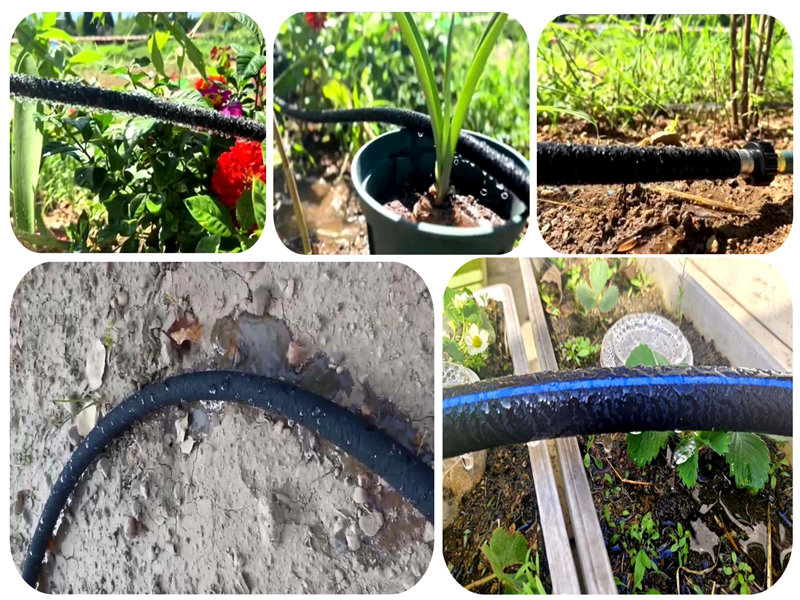What are the advantages of nano irrigation hose?
The nano irrigation hose is made from rubber powder and PE with chemical additives, the rubber powder can be made from recycled rubber tyre and other rubber wastage. nano irrigation hose is a new type of water-saving irrigation system that integrates nano-material science and precision irrigation technology. Its core principle is to achieve controllable water penetration through nano-scale microporous structure, providing continuous and uniform water supply for plant roots.

(I) Core Advantages
Significant water-saving efficiency: 70%-80% compared to traditional flood irrigation and 30%-50% compared to drip irrigation. For example, the nano-drip irrigation system in the Kubuqi Desert saves 150 cubic meters of water per mu for grape cultivation, increasing water utilization to over 85%.
Anti-clogging and long-lasting: Nano-scale micropores naturally filter impurities. Combined with a "normal pressure flushing + high-pressure punching" maintenance mechanism, it can operate continuously for over five years with a flow rate attenuation rate of less than 12%. Traditional drip irrigation tapes typically have a lifespan of only two years due to silt clogging, but nano-tubes can maintain stable operation even with sandy water from the Yellow River.
Increased Yield, Improved Quality, and Environmental Benefits
Increased Crop Yield: Continuously moistened roots promote nutrient absorption, increasing yields of crops like grapes and corn by 18%-50%.
Soil Improvement: Avoids compaction and salinization caused by flooding, increasing soil microbial activity by 20%-30%. Emission Reduction and Efficiency Improvement: Reduce fertilizer loss by over 35% and, when combined with photovoltaic systems, reduce carbon emissions by 40%.

(II) Application Scenarios
Agriculture
Field Crops: Large-scale cultivation of cotton in Xinjiang and corn in Inner Mongolia improves quality through precise water control.
Cash Crops: Water-sensitive crops such as blueberries and grapes can achieve both water conservation and quality improvements.
Saline-Alkali Land Management: Nanodialysis technology achieves in-situ soil desalination, transforming saline-alkali land into arable land.
Ecological Restoration and Desertification Control: Nano-drip irrigation technology has been used in the Kubuqi Desert to successfully cultivate grapes and develop ecological agriculture within the sand dunes, increasing vegetation coverage from 3% to 53% and sequestering 1.6 million tons of carbon annually.
Urban Greening and Home Gardening
Municipal Engineering: Underground nanotubes in road green belts and parks reduce surface evaporation and labor maintenance costs.
Home Use: Garden plants and potted flowers can be automatically irrigated without maintenance, saving over 50%.
